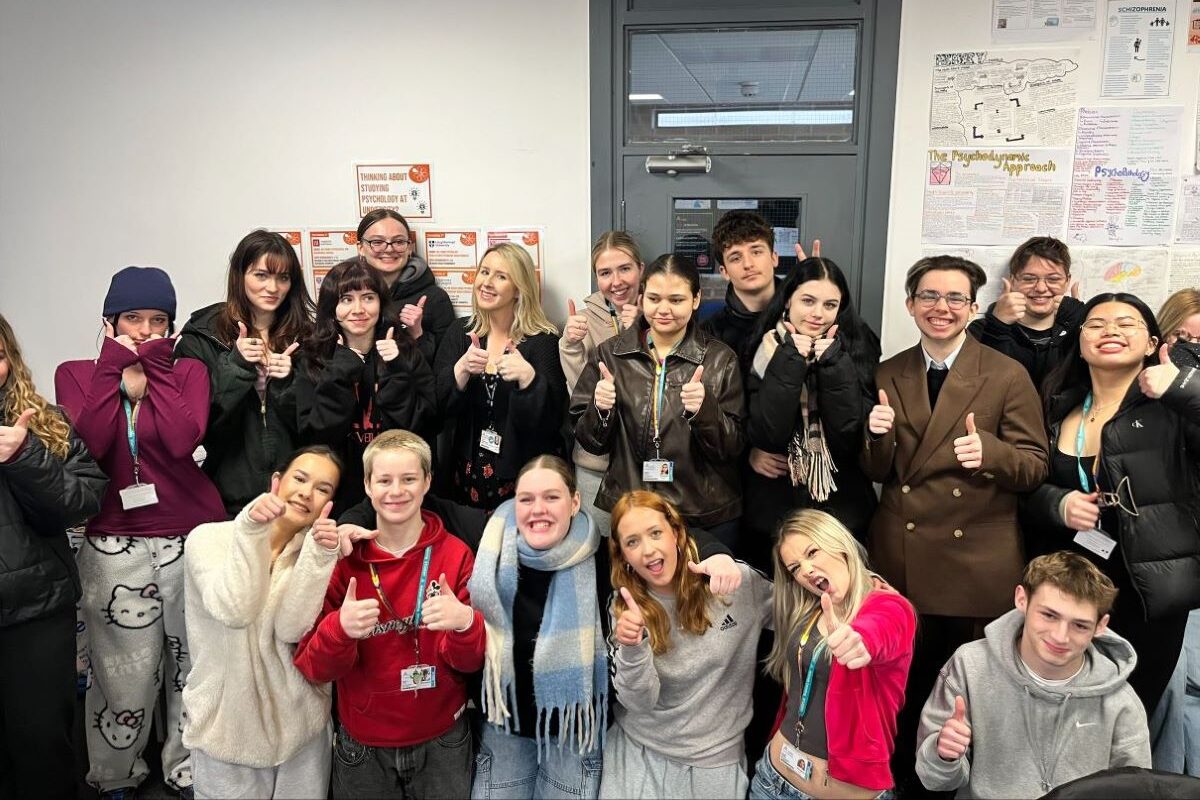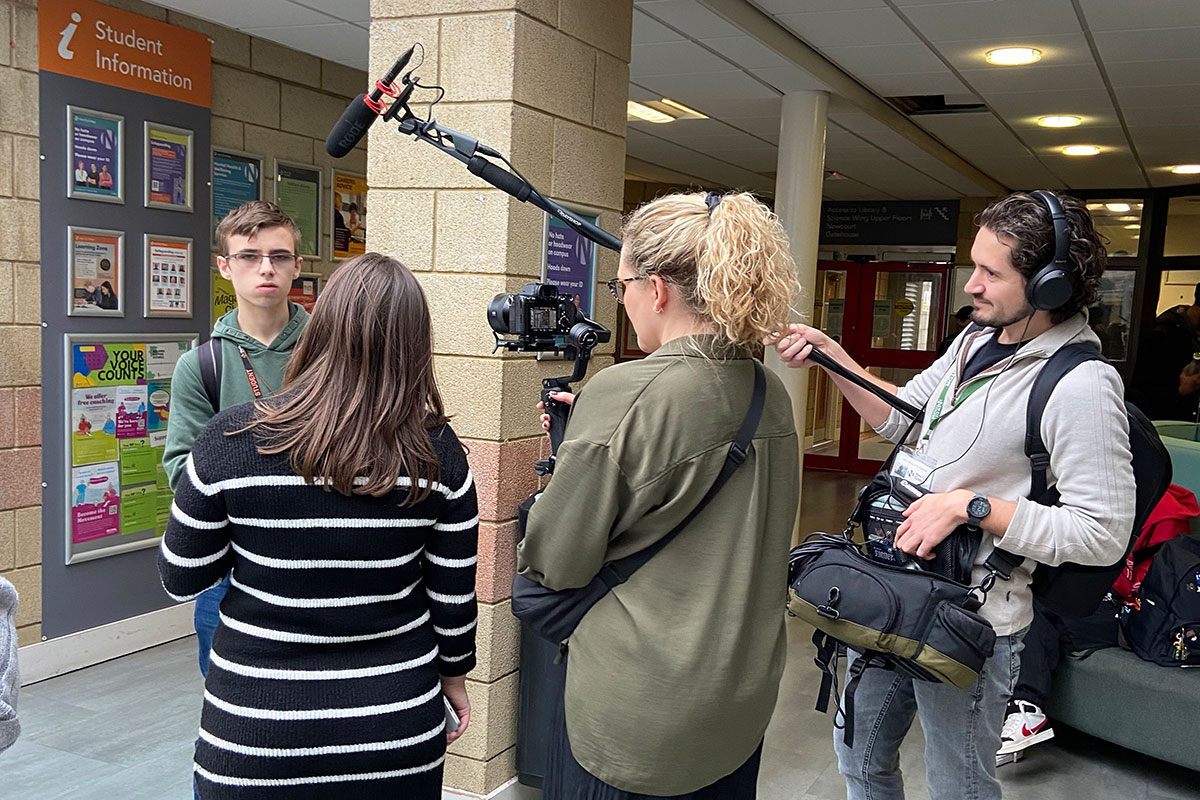John Blake appointed new Director for Fair Access and Participation at the Office for Students

In a speech today (24 Nov), Higher and Further Education Minister Michelle Donelan will tell universities to rewrite their plans around access and participation with tough, ambitious targets to increase the proportion of students studying degree apprenticeships, higher technical qualification or part time courses.
All access and participation work will need to be focused on actions that support learners, with needless complexity and bureaucracy cut out.
The reform will be the first task for John Blake who today has been appointed as new Director for Fair Access and Participation at the Office for Students.
After a career in teaching and education policy, John now leads on policy and political issues related to schools, education, and wider social impact for Ark, a charity which operates one of the most successful multi-academy trusts in the country, Ark Schools.
He will draw on his experience of highly successful schools and social reform charities in order to improve academic attainment through the country’s world class universities.
The Department for Education has been clear that universities’ plans should be clear and comprehensible to students and parents and should be available on university websites.

John Blake, new Director for Fair Access and Participation at the Office for Students said:
“I am delighted to be appointed as Director for Fair Access and Participation. I look forward to working with universities and colleges to ensure that young people from all backgrounds are able to access the education that is right for their achievements and aspirations.
“I am especially keen to see further development of partnerships between higher education providers and groups of schools to improve attainment for disadvantaged young people throughout their schooling, providing them the knowledge, skills and experiences they need to access higher education.
“But attainment and access are only the first steps: they need to be matched by participation and success. It is crucial that students are able to study on high quality courses which meet their needs, and are then supported so they are ready to embark on rewarding lives and careers after graduating.”

Clare Marchant, Chief Executive of UCAS, said:
“UCAS welcomes the appointment of John Black into this key role. His experience working in schools will be critical to delivering better outcomes for disadvantaged students, whether that’s in a college, university, or an apprenticeship.
“With 1 million people using ucas.com each year, we have a pivotal role in making sure that every person, regardless of background or postcode, has the high quality, independent advice they need to make life changing choices about their next step.
“Inspiring students starts as early as primary school, with UCAS research showing advantaged students are around 40% more likely to think higher education is for them compared to their disadvantaged peers. It’s therefore vital that universities, schools and UCAS work together to raise attainment and make sure people succeed in the education or training they choose.
“We look forward to working with John and the OfS on a continuing productive and collaborative relationship.”

Professor Steve West, President of Universities UK and Vice-Chancellor of UWE Bristol, said:
“We welcome John Blake to the important role of Director for Fair Access and Participation at the OfS.
“Universities are central to social mobility and levelling up opportunity, and are committed to accelerating access to higher education, particularly for those from disadvantaged backgrounds, while ensuring students have a high quality university experience. Universities stand ready to play a full part in education recovery from the pandemic by reaching out further and wider to the talent of tomorrow and supporting efforts to raise school-age attainment.
“We look forward to working with John to build on the progress the sector has made by identifying areas for further improvement within Access and Participation Plans to create more opportunities for students and help them to develop skills and reach their full potential. It is positive to see a focus on part-time courses, higher technical qualifications and degree apprenticeships and we look forward to working with government to boost demand for more diverse and flexible ways of learning.”

Dame Rachel de Souza, DBE, Children’s Commissioner for England said:
“There’s no doubt pupils benefit from additional educational interactions with University lecturers and students. I saw an example of it first hand when I was a teacher.
“As Children’s Commissioner I have conducted this year, the largest survey of children, ever, one thing that came through very strongly from children across the country and across all backgrounds was how much a good, stable career and future was a key priority for them.
“Post pandemic, children are ready to learn, keen to get on, but they want the best support to help them achieve that goal. Universities and schools should the play the most important part in making that a seamless journey from childhood to career.”
Alongside this work, there is a intervention to ensure improved access and participation at a postgraduate level. Thirteen new projects, worth nearly £8million, will attempt to tackle persistent inequalities that create barriers for Black, Asian and minority ethnic students to access and take part in postgraduate research (PGR).
The projects, worth nearly £8 million, are innovative in scope, scale and focus to an extent that has not been seen in England before. Delivered over the next four years, they will improve access into research, enhance research culture and the experience for Black, Asian and minority ethnic PGR students, and diversify and enhance routes into a range of careers.
The investment, by Research England – part of UK Research and Innovation (UKRI) – and the Office for Students (OfS), is well spread geographically, across English higher education providers and their partners. The projects range from targeting recruitment, admissions and transition to increasing the number of Black, Asian and minority ethnic female professors, and generating new admissions practices to creating longitudinal, systemic, and structural change at various English universities.

Panel co-Chairs, Dr Anne-Marie Imafidon MBE and Maisha Islam, said:
“Over the course of 2020-21, the longstanding urgency for racial equality was incredibly obvious. We are confident that this competition will be a significant step of tangible action, investment and commitment to support these aims in the context of English Higher Education.
“The 13 projects will work collectively to support the entire PGR lifecycle using innovative methods and approaches. This includes reviewing admissions processes to tackling offer rate gaps, and plans to extend routes into doctoral study via professional doctorates and partnering with the NHS. Other projects will focus specifically on intersectional inequalities related to Black female students, and prioritise the mental health of their PGR students of colour.
“We have sought to back projects that have demonstrated authentic engagement and partnership work with their students and staff of colour, and a commitment to continue this as part of their own ongoing evaluations.
“This is only one of many first steps, as systemic inequalities will not disappear overnight. We are acutely aware of how much further the sector needs to travel to be in a position to allow people of all backgrounds to flourish and establish the most outstanding research and innovation sector with a formidable research culture to match.”

Research England’s Director Research, Steven Hill, said:
“Persistent inequalities occur throughout higher education for Black, Asian and minority ethnic students.
“Some of the inequalities that exist for Black, Asian and minority ethnic undergraduate students – such as the current gap in degree outcomes between white students and Black students of 22.1 percentage points are reflected in the underrepresentation of Black, Asian and minority ethnic students in postgraduate research (PGR) students.
“PGR students are also researchers and teachers, and play an important role in supporting the research and academic talent pipeline.
“Supporting access and successful participation for Black, Asian and minority ethnic PGR students through these 13 innovate projects is crucial – both to improve opportunities for current generations, and to increase the diversity of talent into academic careers, which has been identified as important to addressing attainment gaps.”
Data published in the OfS Access and Participation Dashboard shows that young full-time first-degree entrants are less likely to continue after year one of their studies than more advantaged peers. 90.1% of young full-time first degree entrants in 2018/19 from POLAR Quintile 1 backgrounds continued after their first year; lower than all other (more-advantaged) POLAR Quintiles.
In 2020, 45% of UK 18 year olds from disadvantaged backgrounds accepted to full time undergraduate HE were accepted onto STEM subjects compared to 43% of their advantaged peers.
In 2020, 49% of UK ethnic minority applicants accepted to full time undergraduate HE were accepted onto STEM subjects, compared to 43% of white accepted applicants.
New research from the Institute for Fiscal Studies shows disadvantaged graduates are half as likely as their privately educated peers of being high earners by age 30.
75% of Ark’s new schools achieve results that are in the top 20% nationally. Pupil characteristics of the Ark show 38% are on free school meals compared to 20.8% nationally and 80% of pupils are minority ethnic compared to 33.6% nationally. 55.1% of pupils at the Ark go onto a top third university including Russell Group and Oxbridge.











Responses